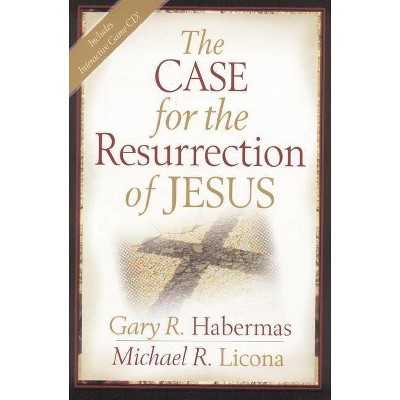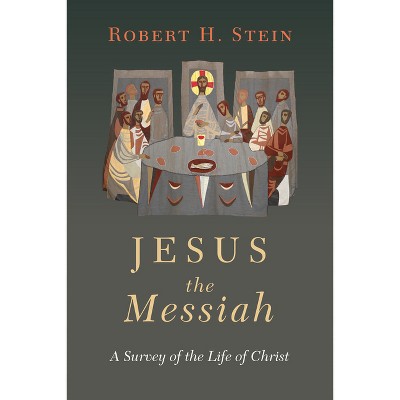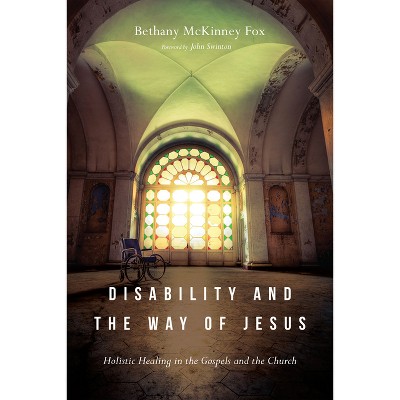Sponsored

The Resurrection of Jesus - by Michael R Licona (Paperback)
In Stock
Sponsored
About this item
Highlights
- The question of the historicity of Jesus' resurrection has been repeatedly probed, investigated and debated.
- About the Author: Michael R. Licona (Ph.D., University of Pretoria) is Research Professor of New Testament at Southern Evangelical Seminary and on staff at the North American Mission Board.
- 720 Pages
- Religion + Beliefs, Christian Theology
Description
About the Book
Could there be any new and promising approach to the question of the historicity of Jesus' resurrection? Yes, answers Michael Licona. And he convincingly points us to a significant deficiency in approaching this question: our historiographical orientation and practice. He then carefully and effectively applies his principles and methods to the question of Jesus' resurrection.
Book Synopsis
The question of the historicity of Jesus' resurrection has been repeatedly probed, investigated and debated. And the results have varied widely. Perhaps some now regard this issue as the burned-over district of New Testament scholarship. Could there be any new and promising approach to this problem?Yes, answers Michael Licona. And he convincingly points us to a significant deficiency in approaching this question: our historiographical orientation and practice. So he opens this study with an extensive consideration of historiography and the particular problem of investigating claims of miracles. This alone is a valuable contribution.But then Licona carefully applies his principles and methods to the question of Jesus' resurrection. In addition to determining and working from the most reliable sources and bedrock historical evidence, Licona critically weighs other prominent hypotheses. His own argument is a challenging and closely argued case for the historicity of the resurrection of Jesus, the Christ. Any future approaches to dealing with this "prize puzzle" of New Testament study will need to be routed through The Resurrection of Jesus.
Review Quotes
". . . [R]eaders of this well-written, well-documented book will find that both the process used and the issues covered are fascinating."
--D. Ingolfsland, Choice, June 2011"All scholars who are interested in the historical evidence for Jesus' resurrection will profit from this book. . . . No other work matches its thoroughness, depth of research, or rigor in applying a clear and responsible historical method to the question of Jesus' resurrection."
--Charles L. Quarles, Journal of the Evangelical Theological Society, December 2011"For any reader [Licona] will be a most thorough, thoughtful, and courteous companion on his book's long journey through it's important and contested terrain."
--Rev. Robin Griffith-Jones, Church Times, April 28, 2011"Licona develops a surprisingly fresh and rigorous historiographical approach analysing data and interpretations from the eighth century BC up to the third century AD."
--Frederic Mulder, Evangelicals Now, May 2011"No episode in the life of anyone in history is more important than the resurrection of Jesus of Nazareth. Vehemently denied or vigorously defended, it has intrigued the world for twenty centuries. A host of scholars have addressed the phenomenon, so what more could be said? In The Resurrection of Jesus, Michael Licona tells us indeed. In brilliant detail, he begins with the anomaly that I, as an ancient historian, have noted for years: that secular historians often have a much higher regard for the New Testament as source material than do many theologians and scholars of religion. The latter tend to overlay their research with preconceived and hopelessly subjective opinions, often ignoring the basic rules of historiography. Licona corrects all this in showing how the research and writing of history ought to be done objectively, especially in dealing with Jesus. I warmly commend this book to all who want to know if the resurrection of Jesus really happened."
--Paul L. Maier, Russell H. Seibert Professor of Ancient History, Western Michigan UniversityAbout the Author
Michael R. Licona (Ph.D., University of Pretoria) is Research Professor of New Testament at Southern Evangelical Seminary and on staff at the North American Mission Board.
Shipping details
Return details
Trending Non-Fiction






Discover more options





